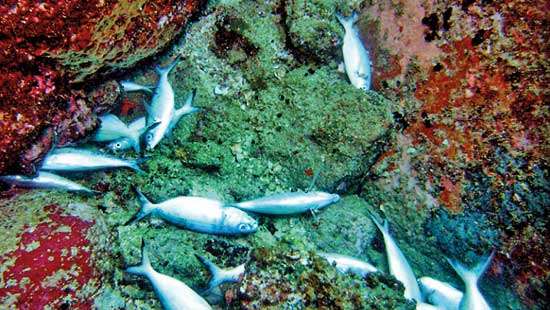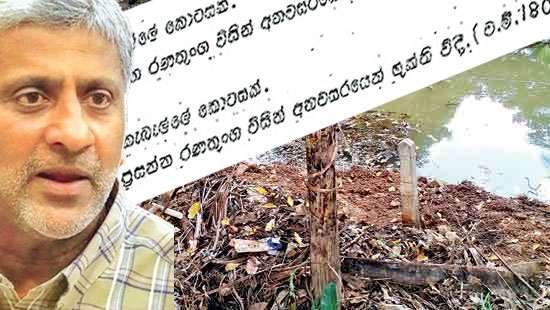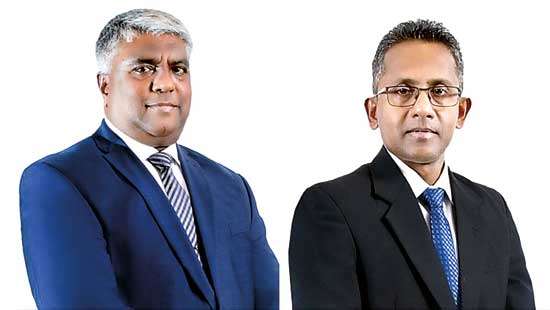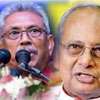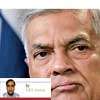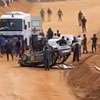- What was most commendable and praiseworthy in many of his songs was his discernible love and affection for Sri Lanka and her people. This was vividly reflected in his songs
- A.E. Manoharan was an ebullient singer with a flamboyant appearance. Manoharan made his name as a rocking singer of popular musical numbers mostly in the Baila music genre
- Although he made his name and earned much fame as a singer, the versatile Manoharan was also a stage and screen actor. In fact, his stage and screen debuts preceded his debut as a pop singer
- Though Manoharan acted in many films in India, the cruel truth is that he did not make an impact in any movie. The reason for this being that none of the roles were substantial
- A remarkable feature of the lead actor played by Manoharan in the drama was that he sang in his own voice on stage without lip-synching the songs
- Manoharan possessed an aptitude for languages and had the knack for extemporaneously rendering the same verses in different languages during performances. He had a magnificent stage presence and could electrify an audience in no time
- In spite of his success as a popular singer of pop music Manoharan was unable to get over his fascination for films and passion to be a film actor. The burning desire to become a movie actor persisted continuously within him
- There were many chances for Manoharan to seek citizenship in a Western country but chose not to because he wanted to return to Tamil Nadu and pursue his dream of being a successful actor in cinema
By
D.B.S. Jeyaraj
Blessed are those Sri Lankans who have lived in different parts of the country, travelled widely within its borders and interacted with all people cutting across ethnic and religious barriers during times of peace and tranquillity in the past. Those who have had such broad experiences unsullied by narrow sectarianism know that the Island is truly “God’s own country” populated by friendly, good-natured people.
Anthonypillai Emmanuel Manoharan known to the world at large as A. E. Manoharan was one such person. Manoharan was a multi-faceted personality possessing many talents. He was a singer, musician, broadcaster and stage and screen actor but it was his singing that brought him great success and honour.
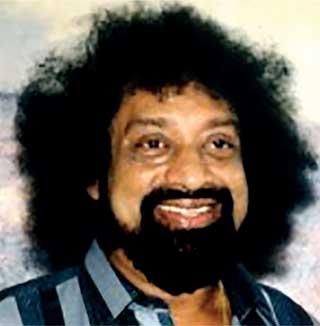 What was most commendable and praiseworthy in many of his songs was his discernible love and affection for Sri Lanka and her people. This was vividly reflected in his songs. He sang of Lanka and its beauty, of its landscapes, mountains, rivers, people, arts, heritage, places of worship and above all the unity amidst diversity of her people.
What was most commendable and praiseworthy in many of his songs was his discernible love and affection for Sri Lanka and her people. This was vividly reflected in his songs. He sang of Lanka and its beauty, of its landscapes, mountains, rivers, people, arts, heritage, places of worship and above all the unity amidst diversity of her people.
Manoharan was a rare artiste who helped in his own small way to help bridge the ethnic divide. He sang many Sinhala songs such as ‘Suranganeeta Maalu Genaawaa’ and popularised them among worldwide Tamil audiences as well as Indian audiences of different ethnicities.
A.E. Manoharan was an ebullient singer with a flamboyant appearance. Manoharan made his name as a rocking singer of popular musical numbers mostly in the Baila music genre. He was proficient in Tamil, Sinhala and English and could sing in all three languages and was hailed as the “Thamizh Poppisaich Chakkaravarthi” (Emperor of Tamil Pop Music) of Sri Lanka.
Acted in 260 Films
Although he made his name and earned much fame as a singer, the versatile Manoharan was also a stage and screen actor. In fact, his stage and screen debuts preceded his debut as a pop singer. A.E. Manoharan has acted in 260 films in Sri Lanka and India in the Tamil, Malayalam, Telugu, Kannada and Hindi Languages. Many of the films were in Tamil and to a lesser extent Malayalam.
“Ceylon Manohar”
In India, his screen name in most films was “Ceylon Manohar”. When he passed away at the age of 73 in 2018, Tamil Nadu media organs reported his death as the demise of “Ceylon Manohar”. He was living in the Chennai suburb of Kanthansaavadi at the time of his death.
Devoting the first Saturday article of each month to a film, film personality or film-related topic is a practice being followed by this column in recent times. This week’s article therefore will focus on AE Manoharan the Pop singer cum film actor.
Though Manoharan acted in many films in India, the cruel truth is that he did not make an impact in any movie. The reason for this being that none of the roles were substantial. They were essentially “bit” roles. Manoharan acted in films starring some great actors like Sivaji Ganesan, Rajinikanth, Kamal Haasan, Jaishanker, Muthuraman, Mammooty, Mohanlal, Rajkumar, Chiranjeevi and many others. But Manoharan seldom got a worthwhile part where he could make a mark.
He generally acted in minor roles, usually playing the villain’s henchman or hero’s sidekick or a relative of the hero or heroine. In the film ‘Jay Jay’ for instance, Manoharan acted as the father of the heroine played by none other than Pooja Umashankar. Sadly Indian filmdom did not utilise his immeasurable singing talent in their films either.
Among the Tamil films “Ceylon Manohar” has acted in India are ‘Maangudi Minor,’ ‘En Kaelivikku Enna Pathil,’ ‘Naan Poatta Savaal,’ ‘Lorry Driver Rajakkannu,’ ‘Neethipathy’ and ‘Manithanil Ithanai Nirangalaa’. Among his Malayalam movies are ‘Maamaangam,’ ‘Thadayara,’ ‘Shakthi,’ ‘Kazhukan,’ ‘Kolilaakkam,’ ‘Thachcoli Ambu’ and ‘Aavaesham’. Among his Telugu films are ‘Chattanikki Kallu Levu’ and ‘Aarani Mantalu’.
Three Sri Lankan Tamil Films
Manoharan has also acted in three Sri Lankan Tamil Films. They are ‘Paasa Nilaa,’ ‘Puthiya Kaatru’ and ‘Vaadaikkaatru’. In ‘Paasa Nilaa’ Manoharan, then a student played the lead role. The film produced in Jaffna was directed by Joseph Devanandan who later directed many Sinhala films as Joe Dev Anand.
The film ‘Puthiya Kaatru’ was produced by Trade Unionist V.P. Ganesan, the father of Colombo district MP and Tamil Progressive Alliance (TPA) leader Mano Ganesan. Manoharan had a guest role in the film.
‘Vaadaikkaatru’ was directed by the legendary Premnath Moraes. It was based on a novel by popular writer ‘Sengai Aazhiyaan’. Manoharan acted in the role of Simeon the second lead in the film.
Manoharan got to sing in all three Tamil films made in Sri Lanka. He also sang the song ‘Udarata Menike’ with Tamil Nadu singer L.R. Easwari in the film ‘Pilot Premnath,’ which was an Indo-Lanka joint production shot mainly in Sri Lanka starring Sivaji Ganesan and Malani Fonseka in the main roles.
Manoharan’s stage and screen debuts as a lead actor or hero were in Jaffna. The drama was ‘Ithaya Oasai’ and the film ‘Paasa Nilaa’. How this came about is an interesting tale.
Born in Bogawantalawa
Anthonypillai Emmanuel Manoharan was born in 1945 at Bogawantalawa in the Central Province of the island then known as Ceylon. His father was a Jaffna Tamil from Eeachamoattai near Paashaiyoor in Jaffna. His mother was an Indian Tamil from Bogawantalawa. After marriage, Manoharan’s father domiciled himself permanently in Bogawantalawa, where he became the Principal of Bogawantalawa Maha Vidyalayam.
Manoharan was schooled initially at Bogawantalawa and Talawakelle. Later on, he was sent to St. Mary’s College, Nawalapitiya where the great singer C.T. Fernando too had studied earlier. After completing his primary education at Nawalapitiya, Manoharan was sent to St. John’s College, Jaffna for his secondary education. He was boarded at the school hostel. He was a popular student known for his playfulness. He made a name for himself as an actor in school dramas and a singer in concerts. The peak of his school career at St. John’s was the ‘Ithaya Oasai’ drama.
‘Ithaya Oasai’ (Sound of the Heart)
‘Ithaya Oasai’ (Sound of the Heart) was a drama put on the boards by the students of St. John’s College, Jaffna in 1963/64. The play proved so popular that it was staged to members of the public in Jaffna, Kandy, Trincomalee, Batticaloa and Colombo. I remember seeing the drama at Saraswathy Hall, Bambalapitiya along with my father who was an old boy of St. John’s College. The chief actor in the play was the handsome curly-haired Manoharan studying in the then Higher School Certificate (HSC) class.
A remarkable feature of the lead actor played by Manoharan in the drama was that he sang in his own voice on stage without lip-synching the songs. The drama was well-received in Jaffna. Many were impressed by Manoharan’s acting. Among these was a schoolmaster from Jaffna College, Vaddukkoddai called Joseph Devanandan. He and a colleague Devan Kulathungam embarked upon a filmmaking venture in 1965.
‘Paasa Nilaa’ (Loving Moon).
The movie was shot in 16 mm film. The story and dialogues relating to school students was co-written by both pedagogues referred to as “Dev and Dev” by Jaffna College students. The film was directed by Devanandan with Devan Kulathungam as associate director. Manoharan’s performance in the ‘Ithaya Oasai’ drama had made quite an impression on Devanandan. He selected the Johnian to play the lead role of Kumar in the film named ‘Paasa Nilaa’ (Loving Moon). It was the fourth Tamil film to be made in Lanka.
The film shot in different locations in Jaffna and at the Peradeniya botanical gardens, Galle Face Green and Dehiwala Zoo was released in 1966. An enchanting song ‘Thendral Thavalum’ sung by Manoharan in the film was a hit. Since the film was in 16 mm it was screened at the Jaffna town hall and at school halls.
Interestingly enough the live-wire behind ‘Paasa Nilaa’ Joseph Devanandan was to move on later from teaching to the cinema field as a filmmaker. He became famous as the film director Joe Dev Anand who made popular Sinhala films like Geetha, Sujeewa, Sunethtra, Obai Mamai, Sukiri Kella, Minisun Athara Minisek and the Sri Lankan Tamil film ‘Rathathin Rathamae’. Joe Dev Anand relocated to the USA after the anti-Tamil pogrom of July 1983. He was recently honoured with a Lifetime Achievement award at the International Film Festival in Jaffna.
St. Joseph’s College, Trichy
Manoharan with his penchant for singing and acting did not focus on his studies as he ought to have done. He completed his HSC with poor grades and did not gain admission to a Sri Lankan university. Thereafter his father sent him to St. Joseph’s College, Trichirappalli (Trichy) in India where he followed a BA degree course specialising in English literature.
Fortunately or unfortunately the “acting” bug had bitten Manoharan severely after his brief stint as the hero of Paasa Nilaa. He would vanish from Trichy for long periods and go to the state capital Chennai then known as Madras where he tried to get a break as an actor in the Tamil film industry. He failed miserably except for a solitary part in a film produced by the legendary MMA Chinnappa Devar.
The film was ‘Maanavan’ (student) and released in 1970. Manoharan had a tiny role as a student in the film which starred Jaishanker, Lakshmi, Muthuraman, Kamal Haasan, “Kutti” Padmini and others. Manoharan was part of the ensemble in a group dance sequence for the song “Visiladichaan kunjugalaa, kunjugalaa” featuring Kamal and Padmini. Manoharan uttered only one line in the film. It was “Mani Thaan Saar” meaning “it was Mani only, sir”. That line by Manoharan became famous among undergrads at St. Joseph’s College who began teasing him by that line thereafter.
J.P. Chandrababu
During his undergraduate days in Tamil Nadu, Manoharan established contact with the great comedian and singer J.P. Chandrababu, who himself had studied for some years at St. Joseph’s College in Grandpass, Colombo. Chandrababu whose full name was Joseph Panimayathas Rodriguez had at one time been a widely sought-after comic actor, who sang his own songs on screen. But from the mid-sixties of the last century, Chandrababu’s career was on the decline. He could not help Manoharan to get a break in films. Manoharan however was to tell friends later that he had learnt the art of yodelling from Chandrababu.
Unable to enter the Tamil film world in India, Manoharan went back home in a rather disillusioned state. After returning to Lanka, Manoharan became a teacher of English at St. Patrick’s College, Talawakelle briefly. The sojourn with Chandrababu and his disappointment over getting an acting opportunity in Indian Tamil films made Manoharan turn to his first love – singing. His main interest and objective in life was now to make a name as a singer.
Manoharan kept travelling to Colombo and other towns to get a chance to sing on stage. These were no major stage shows but minor ones organised on an amateurish level. Still, Manoharan did not let go of the opportunities to perform on stages, no matter how insignificant the event was. He excelled in singing the songs sung by Chandrababu on screen. He also sang the songs of C.T. Fernando and Kishore Kumar, improvising with substituted Tamil words. Soon he gave up his teaching job to focus more on singing and music.
Transforming Music Scene
Meanwhile, the music scene in Sri Lanka was transforming and progressing in new directions. Inspired by the likes of Elvis Presley, Pat Boone, Cliff Richard, Ricky Nelson and of course the Beatles a new genre of popular music was emerging. Earlier mainly due to the efforts of the legendary Wally Bastiansz, a distinctive Ceylonese/Sri Lankan variety of musical forms described as “Baila” had evolved and become very popular. Now a captivating type of music blending the Baila with Western pop song music had started emerging.
A novel kind of popular music and songs known as “pop music” began blossoming and blooming in the Island nation. More and more songs were written, composed, played and sung by more and more singers and musicians. It was Sinhala pop and Tamil pop but it was also Ceylon pop and later Sri Lankan pop. Sinhala pop songs were sung to predominantly Tamil audiences and Tamil pop songs to predominantly Sinhala audiences. There were mixed, multi-ethnic audiences where artistes from different ethnicities performed. To those who were in their teens and in their twenties and thirties in those days, the prevailing musical climate was that of heavenly bliss!
In the seventies of the last century, the Sri Lanka Broadcasting Corporation (SLBC) with the visionary Susil Moonesinghe at the helm provided much scope for the growth and development of Sri Lankan Tamil arts and culture. An important manifestation of this enlightened approach at the SLBC was the encouragement and promotion of Sri Lankan Tamil songs.
‘Poppisaip Paadalgal’ (Pop music songs)
There was a concerted effort to include more and more Sri Lankan Tamil songs with novel, new programmes. One such initiative was the weekly programme called ‘Poppisaip Paadalgal’ or ‘Pop music songs’. It was broadcast for half an hour from 3 p.m. to 3:30 p.m. on Saturdays. It was immensely popular and provided a lot of opportunities to promising new singers and musicians.
It was this SLBC programme that catapulted A.E. Manoharan to all-island fame. He saw the growing popularity of Tamil pop songs and realised that the emerging phenomenon was his passport to success. He began writing songs and setting them to music.
Emperor of Tamil pop music
The SLBC invited Manoharan to its studios and recorded more of his songs. Manoharan, the failed film actor had re-invented himself as a singer of Tamil pop songs. The popularity of his songs rose rapidly. So much so that in 1973 he was crowned in Jaffna by the then Minister of Posts and Telecommunications Chelliah Kumarasuriyar, as the “Thamizh Poppisaich Chakkaravarthy” (Emperor of Tamil pop music).
Manoharan possessed an aptitude for languages and had the knack for extemporaneously rendering the same verses in different languages during performances. He had a magnificent stage presence and could electrify an audience in no time. He sang with the great contemporaries of his time in Sinhala and Tamil music catering to multi-ethnic audiences
Manoharan in his heyday sang in concerts, music shows and songfests throughout the island. He was perhaps the most loved Tamil singer (next to Rukmani Devi) of Sinhala music aficionados in his time.
‘Black July’ of 1983
Sadly the ‘Black July’ anti-Tamil violence of 1983 and subsequent deterioration of ethnic relations compelled him to seek a new home and new life in India. Still, he would occasionally visit Lanka and participate in events.
In spite of his success as a popular singer of pop music Manoharan was unable to get over his fascination for films and passion to be a film actor. The burning desire to become a movie actor persisted continuously within him.
The opportunities to act in ‘Puthiya Kaatru’ and ‘Vaadaikkaatru’ and the brief encounter with ‘Pilot Premnath’ enflamed those embers again. Even before July 1983, Manoharan visited India frequently seeking a break in films. After ‘Black July’ he permanently relocated there.
Again it was his singing more than his acting which sustained him in India. The income from playing minor roles in films was not sufficient. Manoharan sang in clubs, hotels and also performed in stage events regularly in India. He also toured many North American, European, South East Asian and Australian cities with Sri Lankan Tamil concentrations and engaged in shows there.
Dream of Being a Successful Actor
There were many chances for Manoharan to seek citizenship in a Western country but chose not to because he wanted to return to Tamil Nadu and pursue his dream of being a successful actor in cinema.
Manoharan’s health began to decline after he passed 60. His kidneys were affected, resulting in dialysis treatment. Finally, he passed away in his sleep peacefully on January 23, 2018.
Seeing his funeral in India via internet was quite sorrowful and painful. In spite of having acted in so many Indian films, none connected to the film industry paid their respects. Only a few Sri Lankans in Chennai, neighbours and church members were present. The harsh reality was that the Emperor of Sri Lankan Tamil Pop Music had flopped miserably in his passionate attempt to be a successful film actor in India. This bitter truth became painfully obvious at his funeral.
Did the Sri Lankan Skylark Blunder?
One could not but help reflect upon the huge crowds that flocked to hear him in the past and wonder whether the Sri Lankan Skylark had blundered by seeking the mirage of celebrity status as an actor in India instead of remaining amidst hardship in his own, native Sri Lanka and doing what he did best – Singing!
D.B.S. Jeyaraj can be reached at dbsjeyaraj@yahoo.com



 What was most commendable and praiseworthy in many of his songs was his discernible love and affection for Sri Lanka and her people. This was vividly reflected in his songs. He sang of Lanka and its beauty, of its landscapes, mountains, rivers, people, arts, heritage, places of worship and above all the unity amidst diversity of her people.
What was most commendable and praiseworthy in many of his songs was his discernible love and affection for Sri Lanka and her people. This was vividly reflected in his songs. He sang of Lanka and its beauty, of its landscapes, mountains, rivers, people, arts, heritage, places of worship and above all the unity amidst diversity of her people.